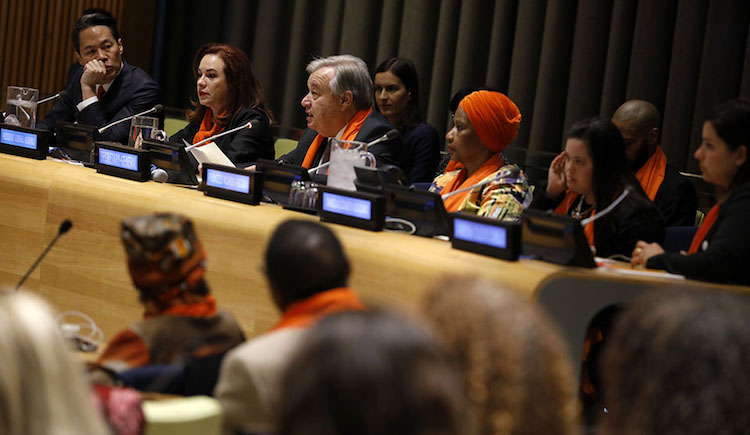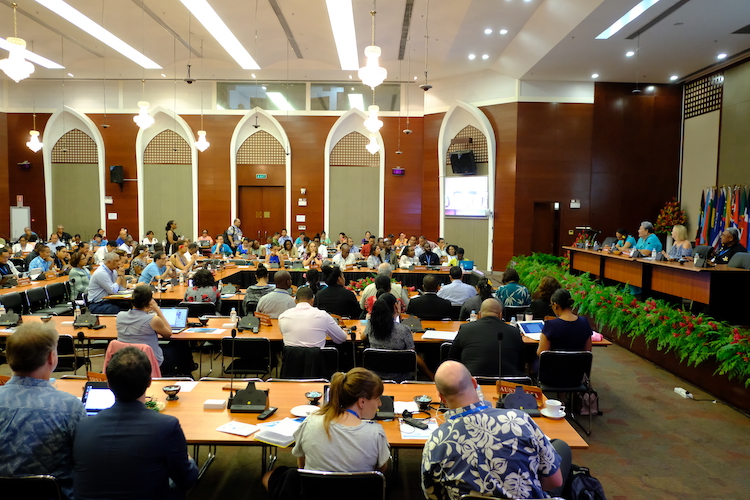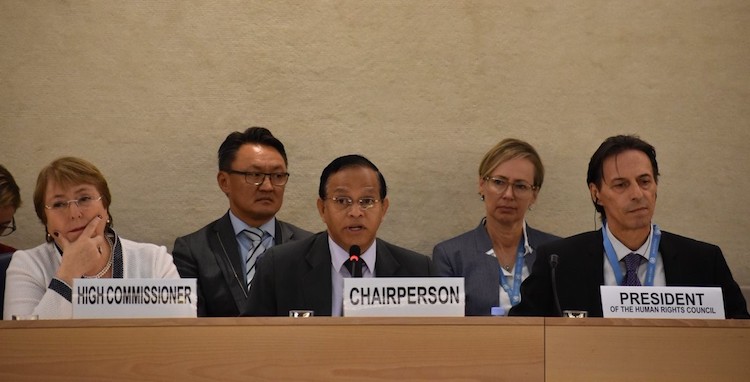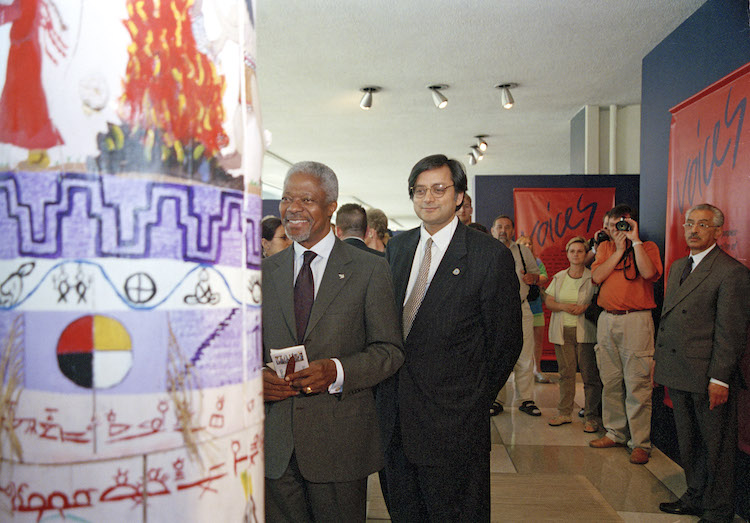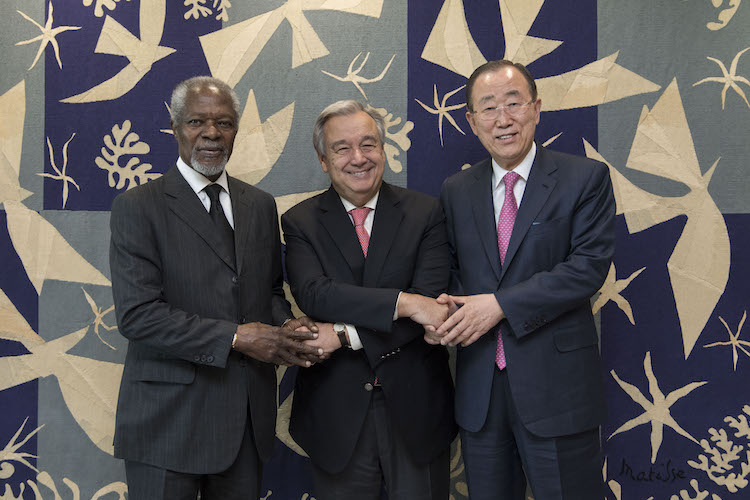By Caroline Mwanga NEW YORK (IDN) – Worldwide movements and corporate walk-outs have exposed the magnitude of violence against women and girls and highlighted how often such violence is normalized. Research shows that violence against women and girls affects one in three women worldwide and that no country is immune to this pandemic. Yet instead […]
Small Island Developing States Reiterate Commitment to Sustainable Development
By J Nastranis NEW YORK (IDN) – Confronted with the increased effects of climate change, natural disasters, and the outsized impacts of global economic shocks on small economies, Small Island Developing States (SIDS) have resolved to strengthen their efforts to achieve sustainable development. The ‘Apia Outcome’ – adopted at the conclusion of a three-day meeting […]
UN Announces ‘SDG Hubs’ Connecting Universities with 2030 Global Agenda
By Ramesh Jaura NEW YORK (IDN) – The critical role of academia in general and the United Nations Academic Impact (UNAI) in particular in advancing the goals of the United Nations Charter was underlined when the Organization celebrated the 73rd anniversary of its entry into force on October 24. In view of the fact that […]
Sri Lanka Chaired UN Forum Focuses on Sport to Promote Human Rights
By Jamshed Baruah GENEVA (IDN) – The Social Forum of the UN Human Rights Council serves since 2008 as a unique space for open and interactive dialogue between civil society actors, representatives of Member States, and intergovernmental organizations, on a theme chosen by the Council each year. The 2018 Social Forum, with Sri Lanka’s Permanent […]
Kofi Annan: A Man of Rare Warmth, Wit and Wisdom
By Shashi Tharoor Those who worked with him and those whose lives he touched knew the former United Nations Secretary-General possessed a rare ingredient not always found in successful men – he was a wonderful human being, writes Shashi Tharoor, former UN Under-Secretary-General under Kofi Annan, currently a Member of Parliament in India. This article […]
Kofi Annan Was the United Nations, Says UN Chief Guterres
By Shanta Roy NEW YORK (IDN) – Kofi Annan, the seventh Secretary-General of the United Nations, and the first from sub-Saharan Africa, was the only UN chief who rose from the mid-level ranks of the professional staff to the 38th floor of the Secretariat. At a wreath-laying ceremony in the UN precincts on August 21, […]
UN’s Fallen Chief Kofi Annan ‘A Voice for the Voiceless’
By António Guterres Following are UN Secretary-General António Guterres’ remarks, as delivered, at the wreath-laying for Kofi Annan at United Nations Headquarters, in New York on August 22, 2018. Read also Kofi Annan: A Life of Service to People Across the World. – The Editor NEW YORK (IDN-INPS) – We are here to pay tribute […]
The United Nations mourns Kofi Annan
UN Chief Guterres Calls For Beating Menacing Plastic Pollution
The world must unite to “beat plastic pollution” United Nations Secretary-General António Guterres said in his message for World Environment Day, noting that microplastic particles in the ocean, “now outnumber stars in our galaxy”.
UN Focuses Yet Again on Protecting Indigenous Peoples’ Rights
By UNDESA Note: The following Feature appeared in April 2018 issue UN DESA VOICE, the newsletter published by the United Nations Department of Economic and Social Affairs. It is being reproduced with slight modifications. – The Editor NEW YORK (IDN) – Indigenous communities play a vital role as custodians of our planet, possessing vital knowledge […]

